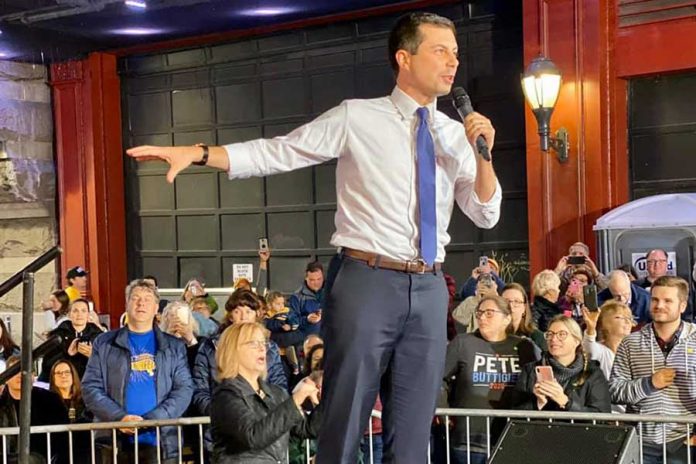In 2014, I traveled with a U.S. trade delegation of about 20 business leaders to the Gulf region. I was serving as the speechwriter for Commerce Secretary Penny Pritzker who led the group.
As an openly gay man, I was aware of the fact that the countries we would visit — including Saudi Arabia — are oppressive to LGBTQ people. I couldn’t let my guard down when people asked about my family or other seemingly mundane topics.
Over the past year, as I and others built an active grassroots network of “Philly for Pete” supporters, the officials Pritzker met on that trip kept coming to mind.
I have daydreamed about being a fly on the wall when the leader of an LGBTQ-unfriendly nation was briefed on the U.S. presidential race. Perhaps an aide would bring in photographs or bios of the Democratic contenders and the conversation would go like this:
Aide: “Here are the candidates. You probably recognize Joe Biden, Bernie Sanders, Mike Bloomberg, Elizabeth Warren…”
Head of State: “And who is this young man?”
Aide: “His name is Pete Buttigieg. He’s a veteran of the war in Afghanistan. He’s a city mayor. And he’s gay and married to a man.”
How would that conversation then progress?
Perhaps that head of state might be worried about whether President Buttigieg would be willing to even speak with him… Perhaps he would be concerned about a big business or military deal with the U.S. being put in jeopardy… And perhaps, most importantly, the thought would cross his mind that his nation should review or even improve its civil rights laws or policies affecting its LGBTQ citizens.
It’s not far-fetched to think such conversations may have taken place across the globe, including in the region where Pete himself was deployed.
The huge influence that Pete’s campaign has had in advancing LGBTQ rights should not be discounted. He has been a beacon of hope for LGBTQ people everywhere.
Of course, that also includes people here in our own country.
Domestically, we know this: Many young LGBTQ people have met with or written to Pete, saying how he changed their lives or, in some cases, prevented them from committing suicide.
Let’s be clear: Pete saved many lives simply by running and managing to stay in the race as long as he did.
And, of course, he made history. When he won Iowa, he became the first out LGBTQ person to win a state and delegates in the nomination process for a major political party.
His race inspired us here in Southeast Pennsylvania, too.
I remember setting up the first grassroots “watch party” at a bar in Center City to listen to Pete’s campaign kickoff speech from South Bend. With just one week of notice, about 100 people from every walk of life showed up — some from the LGBTQ community, others who walked over from a church service, a few health care workers and many more.
I have become good friends with many of these folks. Together we have marched in parades, registered voters, collected signatures to put Pete on the ballot, organized “Pete-Ups,” canvassed barbershops and beauty salons, and hosted grassroots events with Pete and Chasten themselves.
I personally saw how Pete inspired college students, queer people of color, people with disabilities, and many others who had never before been involved in any political campaign.
Many of us had been phone banking, text banking, or traveling to early primary states — and also gearing up for our own primary on April 28 — in the weeks before Pete ended his campaign.
In everything we did, Philly for Pete deeply reflected the values of belonging and inclusion that our candidate touts and embodies. Possibly for that reason, while we felt some loss when it was over, the overwhelming emotion was that of deep gratitude for having been part of the journey.
We may see Pete Buttigieg as a vice president or U.S. Cabinet member by this time next year, and he may be president someday.
But even if that doesn’t happen, he will have positively impacted the lives of LGBTQ people and many others in our city, commonwealth, country and beyond.
My personal hope is that the next time any LGBTQ American goes on a trade mission, serves abroad in our military or frankly just gets up and goes to work or school, the people they interact with will remember that a gay Indiana man and his husband nearly made it to the White House.
Each of our paths will be a little easier because of their courage.
